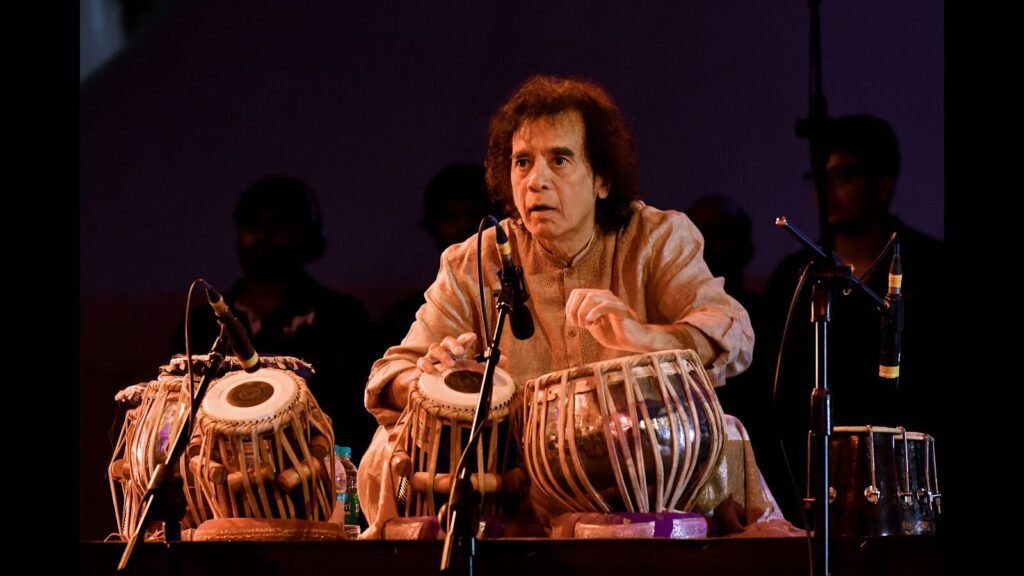Dec 16, 2024 08:16 PM IST
Like all great musicians, Ustad Zakir Hussain was sure of his genius, but as a refined percussionist, he took care not to overshadow the musician he accompanied.
As the disciple and son of Ustad Alla Rakha, Zakir Hussain inherited a formidable legacy. At 12, he performed with his father before an audience that included masters such as Pandit Kishan Maharaj, Ustad Ali Akbar Khan, and Ravi Shankar. In later years, he would accompany Khan and Ravi Shankar, just as his father did. The exhilarating father-son duets were compositions of pure musical joy; between them, the tabla moved to the centre stage from the restricted space of an accompanying instrument. Like all great musicians, Ustad Zakir Hussain was sure of his genius, but as a refined percussionist, he took care not to overshadow the musician he accompanied. His mere presence could shift the gaze and, of course, lift the concert. Such was his charm and charisma.
He was the perfect percussionist for the TV age. His youthful looks, curls swinging as bols flew off the tabla, and stage presence complemented the joyous music he created. In many ways, he was the perfect successor to Ravi Shankar. In the 1960s, Ravi Shankar (with Alla Rakha) charmed the Woodstock and introduced a generation of westerners to Indian music. In the 1970s, a young Zakir Hussain teamed up with guitarist John McLaughlin and others to form the band, Shakti, which experimented with eastern and western musical traditions to achieve global acclaim. He also engaged selectively with cinema, acting and composing music (like Ravi Shankar). His rigorous training in the classical tradition meant he didn’t get carried away by accolades, including five Grammys. In that sense, he was perfectly poised to be the face of a generation eclectic in its musical preferences and exposed to global sounds. The outpouring of grief following his demise suggests that his music spoke to them — and others as well.
Unlock a world of…
See more

